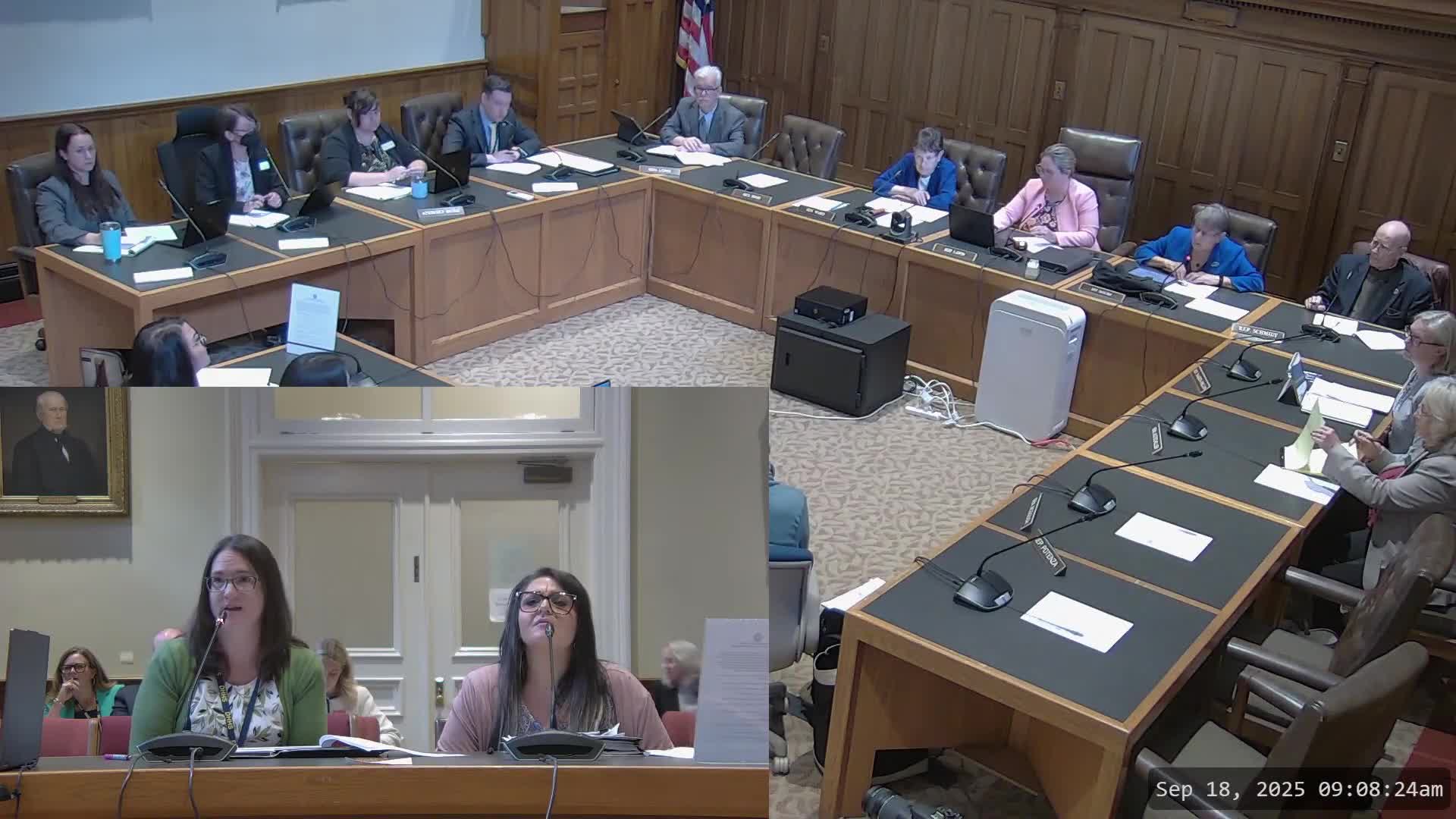Committee approves temporary permits for kinship care licensing process
September 19, 2025 | Administrative Rules, House of Representatives, Committees , Legislative, New Hampshire
This article was created by AI summarizing key points discussed. AI makes mistakes, so for full details and context, please refer to the video of the full meeting. Please report any errors so we can fix them. Report an error »

In a recent meeting held by the New Hampshire Legislature, lawmakers gathered to discuss significant updates to the JLCAR Administrative Rules, particularly focusing on the licensing process for foster and kinship care homes. The atmosphere was charged with a sense of urgency as representatives sought to clarify the complexities surrounding new statutory language aimed at easing the path for caregivers.
At the heart of the discussion was a proposal to introduce a temporary six-month permit for applicants who are unable to meet full licensure requirements immediately. This initiative is designed to facilitate quicker placements of children with relatives or kin, addressing a pressing need in the community. The proposed rules aim to reduce barriers to licensure, allowing kinship care homes to operate more efficiently. Officials expressed confidence that most applicants would complete the licensing process within the six-month timeframe, minimizing the need for permit renewals.
However, clarity emerged as a key concern. Lawmakers debated the language of the rules, with some suggesting that explicitly stating the validity of licenses for two years could alleviate confusion for families navigating the system. This amendment was welcomed by the committee, emphasizing the importance of clear communication in legal documents, especially for those unfamiliar with the intricacies of the law.
As the meeting progressed, attention shifted to the emergency rules concerning the Lottery Commission's implementation of video lottery terminals. The urgency of these rules stemmed from the potential fiscal harm to the state if revenue from these machines was delayed. The committee acknowledged the need for swift action, with plans for regular rulemaking to follow the emergency measures.
Valerie King, the director overseeing the implementation, assured the committee that the process was already underway to finalize the initial proposal for the lottery rules, with a meeting scheduled for October to advance the rulemaking process.
As the meeting concluded, lawmakers recognized the importance of these changes not only for regulatory clarity but also for the welfare of children and families in New Hampshire. The discussions highlighted a commitment to ensuring that the state's systems are responsive and effective, paving the way for a more supportive environment for caregivers and the children they serve.
At the heart of the discussion was a proposal to introduce a temporary six-month permit for applicants who are unable to meet full licensure requirements immediately. This initiative is designed to facilitate quicker placements of children with relatives or kin, addressing a pressing need in the community. The proposed rules aim to reduce barriers to licensure, allowing kinship care homes to operate more efficiently. Officials expressed confidence that most applicants would complete the licensing process within the six-month timeframe, minimizing the need for permit renewals.
However, clarity emerged as a key concern. Lawmakers debated the language of the rules, with some suggesting that explicitly stating the validity of licenses for two years could alleviate confusion for families navigating the system. This amendment was welcomed by the committee, emphasizing the importance of clear communication in legal documents, especially for those unfamiliar with the intricacies of the law.
As the meeting progressed, attention shifted to the emergency rules concerning the Lottery Commission's implementation of video lottery terminals. The urgency of these rules stemmed from the potential fiscal harm to the state if revenue from these machines was delayed. The committee acknowledged the need for swift action, with plans for regular rulemaking to follow the emergency measures.
Valerie King, the director overseeing the implementation, assured the committee that the process was already underway to finalize the initial proposal for the lottery rules, with a meeting scheduled for October to advance the rulemaking process.
As the meeting concluded, lawmakers recognized the importance of these changes not only for regulatory clarity but also for the welfare of children and families in New Hampshire. The discussions highlighted a commitment to ensuring that the state's systems are responsive and effective, paving the way for a more supportive environment for caregivers and the children they serve.
View full meeting
This article is based on a recent meeting—watch the full video and explore the complete transcript for deeper insights into the discussion.
View full meeting
